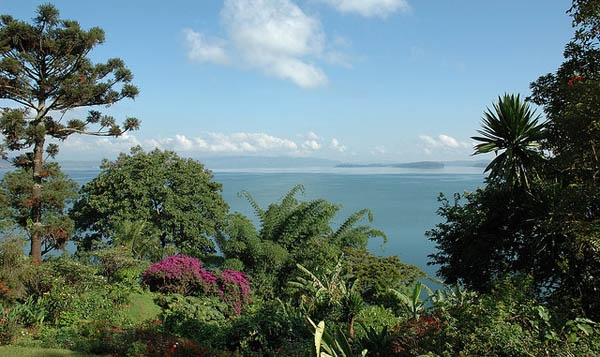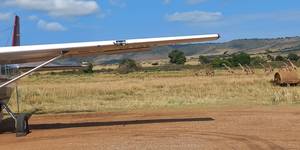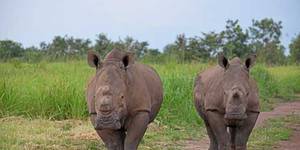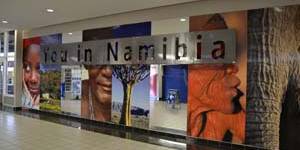Like this article?
Go on, give it a kudu!

Published on September 20 2013
Written by:
Fran
1056 views
Over the years, several countries including the United States, the United Kingdom and Australia have issued DRC travel warnings, regularly. Plagued by decades of violence and conflict as well as the First and Second Congo War, the latter ended in 2003, the DRC remains politically shattered. Recent talks on DRC peace agreements highlighted the urgent need to get to the bottom of the DRC’s conflict: illegal mining and conflict minerals. Because of the DRC’s long-term unstable and unsafe conditions, traveling to Africa’s third largest country is still considered very risky. Currently, traveling to both eastern and northern parts of the country is not recommended due to on-going rebel fighting. But in light of this bleak situation, do we have any reason to believe that the DRC will ever change?
DRC’s natural treasures
As far as natural treasures are concerned, the Congo is one of the wealthiest nations on earth. Its rainforest, covering two-thirds of the country, can offer the same exposure to the African continent as the Amazon to South America. The Congo Rainforest as it is known covers no less than six Central African countries but the majority of the rainforest is within the DRC’s borders. In this part of Africa, we find a quarter of the world’s rainforests. And living up to its rainforest ecological role, the rainforest is home to several threatened and unique species, while storing up to 140 billion tons of carbon dioxide annually. Although severely threatened by logging activities (including shameless logging by international companies), poaching and land clearing, many still believe that the rainforest potential could turn around the DRC’s fate.
A battle of a different kind
While the grave violence and harm to the Congolese civilians persist, there is battle of another kind being fought in the Congo: the battle between shameful international forest logging companies versus conservation and sustainability organizations. The first pretends to carry the local communities’ burdens while in fact exploiting them in the most vulnerable of times, while the latter offer genuine and long lasting support. Logging deals operating under the umbrella of social responsibility are doing very little to aid community development, while the country’s greatest natural asset is stolen from its communities. In contrast, the drive for greenhouse gas control is starting to play an increasingly important and positive role in the Congo. As the second largest rainforest in the world, the Congo rainforest’s carbon service is an added incentive to spare and protect the DRC’s greatest treasure. With this in mind, international conservation organizations such as Wildlife Works are fighting a Congolese battle of another kind.
The month of September brought good news for the Congo’s green economy potential. The Climate Investment Funds will be donating $21.5 million to the DRC to aid the sustainable management of its rainforest. In linking sustainability, climate change and community welfare, it is projects like these that can offer long-term benefits to the people of the Congo. Estimates are that up to 400,000 Congolese people will benefit from this specific project for the next 25 years. Apart from financial gain, communities can expect improved water, health conditions and much needed promotion of gender equality. Although the funds donated to the project may seem purely from a climate change perspective, it reaches much deeper than this. The African Development Bank recognizes this too. This kind of support is critical for turning the DRC away from mass violence and instability. Because only after the Congolese has been uplifted from the extreme poverty will the senseless and harmful nature of violence associated with illegal mineral trade be received and recognized by the Congolese public. By implementing the REDD+ carbon project in the DRC, this battle is one that will bring hope and outcome for the local communities. Job opportunities and infrastructure improvements are becoming a reality, and local communities are able to live from the rainforest’s benefits – conservatively and while preserving the forest and its species.
Long term support for a safer DRC
Could carbon financing be part of the solution to end violence and political instability in the DRC? Although political support from the DRC cannot be guaranteed, there is one guarantee. The recently confirmed REDD+ project for the DRC will support the DRC and its sustainable forest management, while serving the communities, for at least 25 years. For now, safety warnings remain for traveling to the DRC. But with local community employment and local economy improvement fuelled by sustainable forest management, it makes sense that tourist opportunities and safety in the DRC, will turn for the better.
Photo credits: some rights reserved by Julien Harneis via flickr [Creative Commons]
Has been on: 11 safaris
Seeing beyond the average tourist routes and experiencing local life is my type of travel! Living in South Africa I'm an environmentalist at heart, and I continue to marvel at the beauty of the African continent.
© Your African Safari Ltd, All rights reserved.
Your African Safari is a safari-planning and safari review site. It was created to help support a healthy African wildlife population. All reviews are vetted before being approved and only ethical tours are published

Using charter flights on your next safari
Published on December 22 2025
By: yourafricansafari.com

Garamba National Park—an anchor of hope in the Democratic Republic of Congo
Published on January 09 2025
By: R.W.

Namibia imposes new visa requirements
Published on July 25 2024
By: yourafricansafari.com